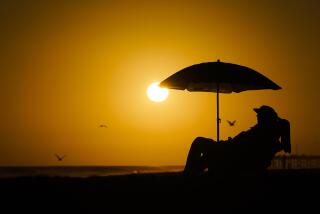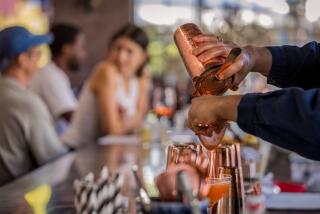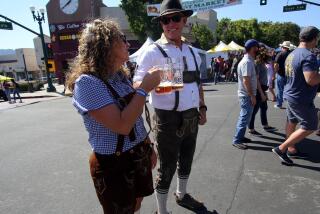Op-Ed: Let’s make it last call for California’s 4 a.m. bar bill
For the fourth time since 2013, state Sen. Scott Wiener (D-San Francisco) has introduced a “4 a.m. bar bill” in the California Legislature. The bill, called SB 58 this time around, would allow 10 cities, including Los Angeles, to extend last call at nightclubs, bars and restaurants from 2 to 4 a.m. as part of a five-year pilot program.
Because Los Angeles is specifically mentioned in the bill and has many thousands of alcohol-serving venues, there is an assumption that city leaders here support the bill. That is not the case. There has been no formal vote or endorsement of this bill by the Los Angeles City Council. To the contrary, I have introduced a resolution to oppose it.
Wiener contends that nightlife is central to cities’ culture and economy and that individual municipalities, not the state, should determine alcohol service hours. But the problems caused by excessive alcohol consumption — and is there any other kind after 2 a.m.? — don’t stay neatly inside city boundaries, especially in Southern California.
No one should ever prioritize a few hours of high bar tabs over public safety.
Last year, Wiener managed to get his bill through the Assembly (51-22) and Senate (28-8) and put it on the governor’s desk for a signature. Advocates who work to reduce alcohol-related harm in communities, including me, held their breath. What would happen if people were able to drink at some bars or nightclubs until 2 a.m. and then drive to other cities to drink until 4 a.m.? In Los Angeles County, for example, bars in Santa Monica or Beverly Hills would have last call at 2 a.m., but in West Hollywood or Los Angeles, that could be 4 a.m. The same is true with the patchwork of cities the bill selects for its pilot in the Coachella Valley.
Thankfully, Gov. Jerry Brown vetoed the bill after hearing testimony from the California Highway Patrol that the bill would lead to increased drunk driving. “We have enough mischief from midnight to 2 a.m. without adding two more hours of mayhem,” the governor declared.
In January, however, a new governor was sworn in, and Wiener recycled his ill-advised bill. Perception is that Gov. Gavin Newsom, formerly the mayor of San Francisco and owner of bars, restaurants and wineries (now held in a blind trust), is much more friendly to the nightlife industry.
A 2013 meta-analysis of 40 years of research into alcohol-serving hours in other countries (a study co-authored by Dr. Jonathan Fielding, former Los Angeles County Department of Public Health director) found that extending alcohol sales for two or more hours increased the number of vehicle crashes, emergency room admissions, assaults and stops for drunk driving. Excessive alcohol consumption is already the second leading cause of premature death and disability in Los Angeles County, claiming more than 2,500 lives annually and costing the county $10.8 billion in lost productivity, healthcare and emergency services costs.
Enter the Fray: First takes on the news of the minute from L.A. Times Opinion »
Advocates for responsible drinking have long noted that DUI arrests don’t happen where the alcohol was consumed. Data from Ventura County, which tracks DUI arrests, found that drivers had traveled an average of seven miles before being pulled over. That creates a “splash effect” encircling each neighborhood. So even if Los Angeles decides not to extend alcohol service until 4 a.m., the city will be crisscrossed by people going to and from bars, restaurants and nightclubs in West Hollywood and Long Beach. Of particular concern is drivers leaving bars after finishing their last drink after 4 a.m. who hit the road at around the same time as early morning commuters, including school buses.
The supporters of SB 58 are focused solely on the potential revenue from two more hours of consumer spending, a tourism bump, or fees for these new licenses. But as Wiener well knows, this change will primarily benefit only a small group of nightclub and bar owners. Meanwhile his bill does not take into account the significant expenses to cities affected for increased law enforcement and emergency medical services. If the costs to public health and safety will also increase, even the financial benefit evaporates.
No one should ever prioritize a few hours of high bar tabs over public safety — but Wiener apparently won’t take no for an answer. Brown was right to block this harmful bill last year, and and I hope the Legislature and Newsom heed his wisdom.
Paul Koretz represents the 5th District, which includes West Los Angeles and Encino, on the Los Angeles City Council.
Follow the Opinion section on Twitter @latimesopinionand Facebook
More to Read
A cure for the common opinion
Get thought-provoking perspectives with our weekly newsletter.
You may occasionally receive promotional content from the Los Angeles Times.






